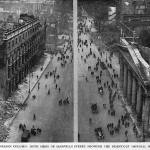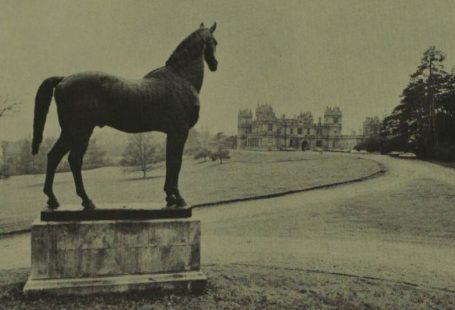The end of Lent is nearly in sight, so for those of you who’ve managed to abstain from a chocolate bar or cheeky tipple, here’s some inspiration to help you through the final days…
As a predominantly Roman Catholic country, Lent has been of national significance in Ireland for hundreds of years. As the Waterford Chronicle reported on 25 February 1860, “The Chapels of our city were densely crowded with the Faithful, anxious to commence the Holy Season of Lent by participating in the religious ceremony of the distribution of the Blessed Ashes.”
So began almost six weeks of strict abstinence. This was no private nod to the calendar, newspapers even printed Lenten regulations. Everyone had to abide, and the call went far beyond declining a treat or two.
According to tradition, children older than seven were not allowed milk during Lent. Younger children had only a little, and babies were to cry “three times” before they received any milk on fast days. Even the babes were tougher than your average adult today.
Examples of these regulations can be gleaned from a number of late 19thcentury Irish publications, which published the dictates of Paul Cardinal Cullen, Archbishop of Dublin, &c., Primate of Ireland as a matter of course.
This has been abbreviated from lists printed with various adaptations in the Cork Examiner and Dublin Courier (in 1859 and 1870 respectively) – though it appeared in myriad publications over those decades:
- Persons bound to fast are allowed to take only one full meal, of meagre fare.
(You were also allowed a small snack, but you had to remain hungry at all times).
- We grant permission to use flesh meat in Lent at one principal meal only, on Sundays, Mondays, Tuesday, Thursday and Saturdays.
- As secret societies are the cause of great evils, tend to promote impiety and infidelity, and are injurious to the public good, the Roman Pontiffs have excommunicated* all who engage in them
- Drunkenness, a vice degrading in itself, and the occasion of innumerable evils, the reading of lascivious poetry and romances, immodest representation in degraded theatres, improper dances, so repugnant to the purity of the Christian morals, are to be avoided, not only during Lent, but at all times.
- Eggs are prohibited on all Fridays and the first and last Wednesdays in Lent; on all other days they are allowed to those who are bound to fast, at the one principal meal.
- Fish and flesh meat cannot be used in the same meal on any day during Lent.
- Persons under their twenty-first year, or broken down by old age, or suffering from sickness, or engaged in hard labour &c. are exempted from fasting. Such as require a dispensation, can apply to any of the parish priests, provided there be just reasons for doing so.
- Dispensations obtained without proper cause are to no avail.
(So unless you actively opted out, you were in for the ride)
- The faithful are exhorted to sanctify this holy season by prayer… For forty hours.
- The faithful are exhorted to pray for the welfare of the Pope, now a prisoner in Rome, and to beg of God to deliver him from the hands of his sacrilegious enemies.
- (The faithful were also required to pray for France.)
- The faithful are commanded, under the threat of excommunication, to receive, each in his own parish church, the Holy Eucharist.
- During Lent works of piety and charity are to be performed… such as providing Catholic education for Catholic children, thus preserving them from the immeasurable evils of mixed schools.
Sounds doable, right?










